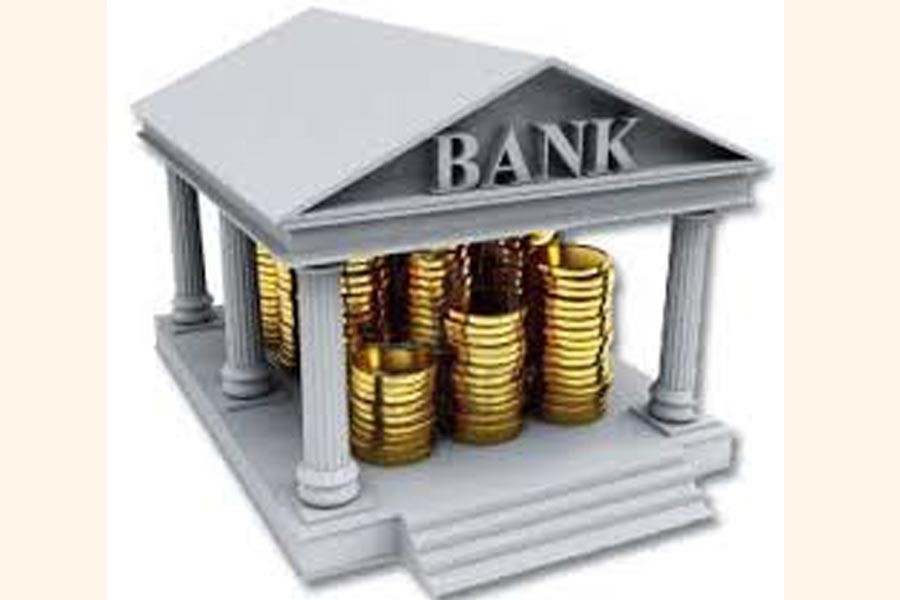
Published :
Updated :

A bank is a financial institution that acts under the prevailing bank company act of the country and takes its licence from the central bank. Banking means what the bank does. Presently banks are doing general banking, investment banking, SME banking, retail banking, foreign exchange transactions, guarantee business, credit certificate and revenue collection of the government. Banks also help the government in implementation of the monetary policy that ultimately helps control inflation of a country and the financial policy. Banks have the multifunctional activities in a country's economy. As such, damaging banks mean damaging economy. So far, sustainable banking is very much important for sustainable economy. Notably, sustainable banking means a process by which companies manage their financial, social and environmental risks, obligations and opportunities. On the other hand, we may say that sustainable banking means acquiring steady profit through banks year after year and losing goodwill within a decade makes it a temporary bank. Entrepreneurs of temporary banks ultimately suffer in terms of monetary benefits as well as goodwill. Let's see how we can build a sustainable banking system for welfare.
General Banking is a department by which banks offer account opening services, help remit funds, honour cheques, take deposit, issue bank draft and pay order, sell government savings certificates and perform clearing of cheques, reconciliation of transactions and maintaining books of accounts. Sustainability of the general banking depends on how fast the banking service at low cost can be provided without use of paper. So far, use of technology is important for sustainable general banking services and the technology should be cheap for the sake of affordability of general people. If banks can use the fastest, cheap and secure technology, there is every possibility of sustainability and financial inclusion.
Foreign Exchange Department is the international department of any bank. It deals globally. It facilitates international trade through its various modes of services. It bridges the gap between importers and exporters. This department is also endorsing passports and transacting the foreign currency. In most of the cases, the department uses the fastest technology like SWIFT and e-mail services. Now it is time to use blockchain, a digital ledger in which transactions are recorded chronologically and publicly.
Credit department is the department that decides the credit limits of borrowers for doing business and or personal purpose. The credit department also provides Bank Guarantee services for its customers. Now, the department is facing the biggest challenges as loans are classified for different reasons like (i) poor assessment, (ii) poor monitoring regarding utilisation of funds, and finally (iii) ethics of businessmen and some bankers. So far, paperless technology as well as knowledge and honesty are important for the bank officers.
There are some other tools in the banking business like capital requirement as per Basel-III, primary and collateral security against the credit facilities, provisioning for classified loans and information technology for smooth banking services.
The concept of Basel-III was applied in December 2010 where one of the main reasons was the economic and financial crisis, which began in 2007. It became so severe that the banking sectors in many countries had built up excessive on- and off-balance sheet leverage. This was accompanied by a gradual erosion of the level and quality of the capital base. At the same time, many banks were holding insufficient liquidity buffers. The banking system therefore was not able to absorb the resulting systemic trading and credit losses nor could cope with the reintermediation of large off-balance sheet exposures that had built up in the shadow banking system. The crisis was further amplified by a procyclical deleveraging process and by the interconnectedness of systemic institutions through an array of complex transactions. During the most severe episode of the crisis, the market lost confidence in the solvency and liquidity of many banking institutions. The weaknesses in the banking sector were rapidly transmitted to the rest of the financial system and the real economy, resulting in a massive contraction of liquidity and credit availability. Ultimately the public sector had to step in with unprecedented injections of liquidity, capital support and guarantees, exposing taxpayers to large losses.
Here, this is not considered that by born banks are highly leveraged organisations and capital of banks is also used for lending to borrowers. So far, if we see some incidents in the banking sector in Bangladesh we find that BASIC Bank lost its image due to an unethical banking practice. The Farmers Bank had also been in trouble, although they had sufficient capital. For sustainability of banking, the Basel-III is a barrier but not solution. But creation of provision against classified loan is a good sign.
Sustainability of banking means sustainability of economy which depends on fastest, cheap and secure technology, paperless banking, selection of environment-friendly sectors for lending as well as quality and honest human resources.
Email: mashiur.du@gmail.com


 For all latest news, follow The Financial Express Google News channel.
For all latest news, follow The Financial Express Google News channel.